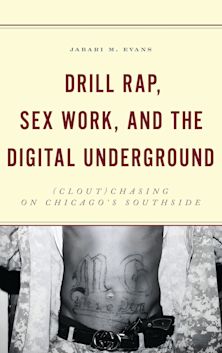Neoliberalism, Postmodernity, and the Contemporary Memorial-Building Boom
Neoliberalism, Postmodernity, and the Contemporary Memorial-Building Boom
This product is usually dispatched within 2-4 weeks
- Delivery and returns info
-
Flat rate of $10.00 for shipping anywhere in Australia
Description
The book develops a new approach to, and a distinct reading of, the contemporary memorial-building boom which began in the 1980s.
Locating the origins of this boom in the crises associated with postmodernity and the rise of neoliberalism, it analyses the complex interplay between neoliberalism, postmodernism and nationalism in some of the most well-known memorials and memorial-museums to have emerged in the USA and Germany over the last four decades.
Rather than offering a survey of contemporary memorials, it traces a specific trajectory (and certainly not the only one ripe for analysis): from the postmodern memorials of the 1980s to the increasingly monumental and authoritative memorials and memorial-museums being constructed today.
Developing a distinct interdisciplinary approach, the book offers a critical analysis of the relationship between the memorials’ form, the “visitor experience” they’re intended to offer. and the understanding of history and our relation to it which underpins their philosophical, ethical and political stance. Questioning the notion that contemporary memorials are ambiguous, non-ideological and non-nationalistic, the book argues that they are engaged in rearticulating nationalism in line with the contradictory demands of the current conjuncture.
As well as critically analysing the political function of national memorials, the book is equally concerned with interrogating the aesthetic means they employ, with a specific focus on the way in which they mobilise the power of the sublime to generate particular affective responses. The book argues that contemporary national memorials reflect one of the most significant convergences between postmodern thought and neoliberal ideology – both project a permanent present, urging us to recreate ourselves in the light of existing conditions, for “there is no alternative”.
Table of Contents
1: The Postmodern-Neoliberal Conjuncture
2: Memorialising in Postmodernity: The Vietnam Veterans Memorial
3: The Holocaust Representation Debate: From the "After-Auschwitz Aporia" to New Forms of "Knowing"
4: Memorialising in Postmodernity: The Holocaust – from "Counter Monuments" to "Trauma Architecture"
5: The Memorial to the Murdered Jews of Europe, the "End of History" and the "Holocaust Sublime"
6: The National September 11 Memorial & Museum: Trauma, Commerce and Patriotism at the new World Trade Center
Conclusion: The Authority of the Sublime and the Future of the Monument
Bibliography
Endnotes
Product details
| Published | 14 Jun 2022 |
|---|---|
| Format | Hardback |
| Edition | 1st |
| Extent | 224 |
| ISBN | 9781786612991 |
| Imprint | Rowman & Littlefield |
| Illustrations | 20 b/w photos; |
| Dimensions | 229 x 157 mm |
| Publisher | Bloomsbury Publishing |
Reviews

ONLINE RESOURCES
Bloomsbury Collections
This book is available on Bloomsbury Collections where your library has access.


































